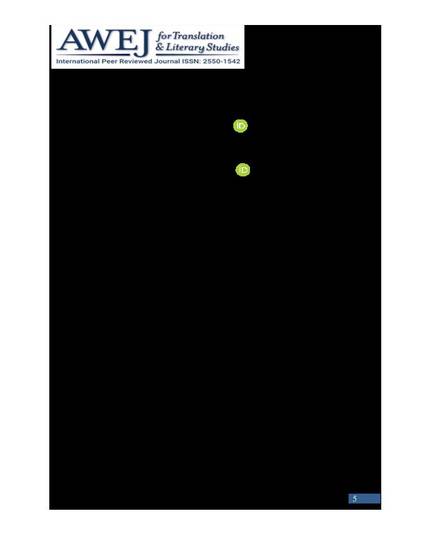
Article
Habitus Entrapment: The Constrictive, Deterministic Habitus of Peter the Venerable
AWEJ for Translation & Literary Studies
(2024)
Abstract
Habitus, as a concept, has been criticized for being constrictive and deterministic since Pierre Bourdieu first introduced it in 1967. Bourdieu transformed this term into a central concept in social theory, wherein the term refers to a collective entity in which predominant social and cultural conditions within a given society are entrenched and replicated. Habitus, consequently, guides agents/individuals in the way they respond, and it also informs their practices in their actual environments. Thus, Bourdieu’s notion of habitus interplays the agent who is bound to a collective social structure with the agent who is free to act. But when can habitus be constrictive and deterministic? This study aims to answer this question. The study shows that when there is a complete and harmonious correlation between habitus and field, habitus becomes constrictive and deterministic. Peter the Venerable’s translation project, The Toledo Collection, is a manifestation of such a conditioning relationship between habitus and field, under which habitus drove the reinforcement of the prevailing sentiments of the dominant institutions of the era, through the influence of translation choices
Keywords
- Bourdieu,
- constrictive,
- deterministic,
- field,
- habitus,
- Peter the Venerable
Disciplines
Publication Date
Winter February 15, 2024
DOI
http://dx.doi.org/10.24093/awejtls/vol8no1.1
Citation Information
Ahmed Elgindy & Maria T Sanchez. "Habitus Entrapment: The Constrictive, Deterministic Habitus of Peter the Venerable" AWEJ for Translation & Literary Studies Vol. 4 Iss. 1 (2024) p. 5 - 14 ISSN: 2550-1542 Available at: http://works.bepress.com/awejfortranslation-literarystudies/433/